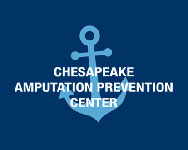
Managing diabetic foot wounds can feel like an uphill battle. You're diligent about checking your feet daily, keeping the wound clean and protected, and getting your feet checked regularly by your Annapolis podiatrist. But despite your best efforts, the healing process seems to be moving at a glacial pace.
At Annapolis Foot & Ankle Center, we understand how frustrating and worrisome diabetic wounds can be. Our compassionate team of foot and ankle specialists takes a comprehensive approach to helping patients manage these complex injuries. While proper wound care and regular podiatry appointments are crucial, there's another key factor that's often overlooked: your diet.
What you eat can significantly impact how quickly and effectively your body heals diabetic foot ulcers and other wounds. Let's explore the fascinating connection between nutrition and wound healing.
Protein: The Building Block of Healing
When you have a wound, your body needs extra protein to repair damaged tissues and build new skin cells. In fact, studies show that protein deficiency can significantly delay wound healing.
Aim to include a source of lean protein at each meal, such as:
- Poultry
- Fish
- Eggs
- Beans
- Tofu
- Low-fat dairy products
If you're having trouble getting enough protein from food alone, your podiatrist or a registered dietitian may recommend a supplement.
Vitamin C: The Collagen Booster
Collagen is the most abundant protein in your body, and it plays a crucial role in wound healing. This structural protein helps form new skin, blood vessels, and scar tissue. Vitamin C is essential for collagen synthesis.
While severe vitamin C deficiency is rare, even mild deficiencies can impair collagen production and slow wound healing. Smoking, stress, and certain medications can deplete vitamin C levels.
To support optimal wound healing, load up on vitamin C-rich foods like:
- Citrus fruits
- Strawberries
- Kiwi
- Bell peppers
- Broccoli
- Tomatoes
Zinc: The Wound Healing Mineral
Zinc is a mineral that's involved in every stage of wound healing, from inflammation to tissue remodeling. It helps maintain skin integrity, synthesize new proteins, and support immune function. Even a mild zinc deficiency can significantly delay wound closure.
Boost your zinc intake with foods like:
- Oysters
- Beef
- Crab
- Pork
- Baked beans
- Pumpkin seeds
- Yogurt
If you follow a vegan or vegetarian diet, you may be at higher risk for zinc deficiency. Talk to your doctor about whether a zinc supplement is right for you.
Omega-3 Fatty Acids: The Anti-Inflammatory Powerhouses
Inflammation is a normal part of the wound-healing process, but excessive inflammation can hinder healing and contribute to the development of chronic wounds. Omega-3 fatty acids, particularly EPA and DHA (found in fatty fish), have potent anti-inflammatory effects.
In addition to reducing inflammation, omega-3s may also help improve circulation and reduce the risk of infection.
The best sources of omega-3 fatty acids include:
- Salmon
- Sardines
- Mackerel
- Herring
- Flaxseeds
- Chia seeds
- Walnuts
Stay Hydrated for Optimal Healing
Staying well-hydrated is essential for overall health and plays a key role in wound healing. Water helps deliver oxygen and nutrients to damaged tissues, removes waste products, and maintains skin elasticity.
Aim for at least 8-10 cups of water per day, and more if you're active or live in a hot climate. Keep in mind that certain beverages, like coffee and alcohol, can be dehydrating.
Managing Blood Sugar Levels
For people with diabetes, maintaining stable blood sugar levels is crucial for wound healing. High blood sugar can damage blood vessels and nerves, impair immune function, and provide fuel for bacteria to grow in the wound.
Work with your healthcare team to develop an individualized plan for blood sugar management. This may include diet modifications, medication adjustments, and regular blood sugar monitoring.
A Balanced Approach to Nutrition and Wound Care
While nutrition plays a vital role in wound healing, it's just one piece of the puzzle. At Annapolis Foot & Ankle Center, we take a multifaceted approach to diabetic wound care that includes:
- Regular wound assessment and monitoring
- Debridement of dead tissue
- Infection control
- Offloading pressure from the wound
- Advanced wound dressings
- Patient education on foot care and prevention
Our team of skilled podiatrists works closely with patients to develop personalized treatment plans that address the unique challenges of diabetic foot wounds. We understand that every patient's situation is different, and we're here to provide the support and guidance you need to achieve optimal healing.
The Path to Healing Starts with a Single Step
Navigating the challenges of diabetic foot wounds can be overwhelming, but remember that you're not alone on this journey. By making simple dietary changes to support wound healing, staying consistent with your podiatry appointments, and following your comprehensive treatment plan, you're taking proactive steps to promote healing and prevent diabetic foot wounds.
At Annapolis Foot & Ankle Center, we're committed to providing the highest quality of care to help our patients overcome diabetic foot complications. Our team is here to offer guidance, support, and expert treatment every step of the way. We understand that the path to healing isn't always easy, but with the right approach and a committed healthcare team by your side, achieving successful wound closure and getting back to the activities you love is within reach.
Remember, small changes in your diet and lifestyle can make a big difference in your wound healing journey. By nourishing your body with the nutrients it needs to heal, managing your blood sugar levels, and staying diligent with your foot care routine, you're giving yourself the best possible chance at a successful outcome. Keep up the great work, and know that the Annapolis Foot & Ankle Center team is here to support you every step of the way.


